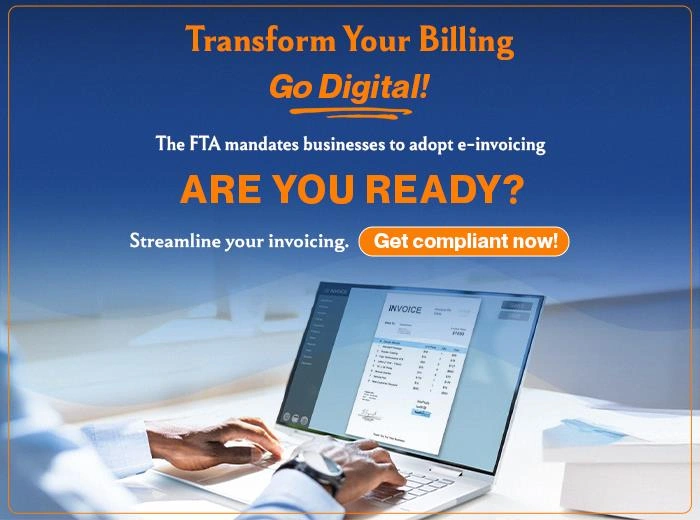Since the UAE introduced corporate tax, many businesses have wondered if they can pay corporation tax in installments to ease cash flow. The answer is no! The Federal Tax Authority (FTA) requires companies to pay corp tax in full by the deadline.
That said, the FTA does allow payment in installments, but only for certain administrative penalties and under specific conditions. In this blog, we will explain how corp tax payments work in the UAE, what options are available for penalty relief and the best ways to stay compliant with the tax rules.
What is corporate tax registration?
Corporate Tax Registration in the UAE means signing up your business with the Federal Tax Authority (FTA) so that it follows the corporate tax law, which started on June 1, 2023. This tax is charged on the net income or profits that businesses earn in the UAE.
Important details about corporate tax registration in the UAE
Corporate tax rates
- 0% tax on profits up to AED 375,000.
- 9% tax on profits above AED 375,000.
Who needs to register?
Every business and taxable person must register, no matter how much income they earn.
- Free Zone companies may enjoy a 0% tax rate if they meet the conditions of a Qualifying Free Zone Person (QFZP).
- Mainland companies and Free Zone businesses that earn income from the mainland are subject to corporate tax.
Registration requirement
All businesses, including Free Zone companies, must register for corporate tax, even if they are exempt or fall under the 0% category.
Failure to register or comply with the rules can result in penalties and fines.
Can corporate tax be paid in parts in the UAE?
Paying penalties in installments
While the main corporate tax cannot be paid in parts, the FTA does offer installment options for certain administrative penalties, but only under specific conditions. If a business receives penalties, for example, for missing filing deadlines, late tax registration or submitting wrong information, it may be allowed to pay corporation tax in installments.
This helps businesses ease cash flow issues while still following the regulations. However, it is important to note that installments apply only to penalties, not to the actual corporate tax amount.
Paying the main corporate tax
Businesses in the UAE must pay corp tax in one full payment to the Federal Tax Authority (FTA). The due date is usually nine months after the end of the tax year. There is no option to pay the main tax in installments, so proper financial planning is very important.
What are administrative penalties?
Administrative penalties are fines charged when a business does not follow corporate tax rules. These fines are separate from the actual corporate tax amount, which must always be paid in full and cannot be split into installments.
When can penalties be paid in installments?
The FTA allows businesses to apply for an installment plan to pay penalties, but only if certain conditions are met.
Minimum penalty value
The total penalties must be AED 50,000 or more.
No pending tax payments
The company must have already paid its full corporate tax for the period related to the penalties.
No active disputes
The penalties should not be under review, objection or appeal. Only confirmed and undisputed penalties qualify for installment payments.
How to apply for a penalty installment plan
Businesses that qualify can apply through the EmaraxTax portal by submitting a request for a Penalty Installment Plan. The application must include:
- Business details
- A written agreement to follow the installment terms
- The total penalty amount
After submission, the FTA will review the request. The process can take up to 110 business days for approval or rejection. The FTA’s decision is final, and if a business fails to stick to the agreed payment schedule, the installment plan will be cancelled.
How can businesses pay corporate tax in the UAE?
Businesses need to log in to the EmaraTax portal of the Federal Tax Authority (FTA) and file their Corporate Tax Return. The tax is calculated at either 0% or 9%, depending on the company’s taxable income. Payments can be made through:
- e-Dirham
- Bank transfer using GIBAN (a unique IBAN number given to each taxpayer)
- Credit or debit card
The full tax amount must be paid before the deadline to avoid fines or penalties. After completing the payment, the business will receive a confirmation receipt, which should be kept for records, audits and compliance purposes.
Continue Reading: How to Register for Corporate Tax in the UAE: Step-by-Step Guide
Final thoughts
UAE businesses must pay corp tax in full, while penalties may be eligible for installment plans under certain conditions. Staying compliant and planning ahead is essential to avoid fines.
For expert guidance on corporate tax payments, smart tax planning and penalty relief, contact Asad Abbas & Co., one of the leading corporate tax consultants in UAE, to get professional support tailored to your business. We also provide comprehensive corporate tax advisory services in UAE for companies of all sizes.
Frequently asked questions (FAQs)
Q1- What happens if your business can’t pay corporate tax on time?
If your business is struggling financially and cannot pay corporate tax by the due date, it is important to act quickly:
- Contact the FTA early: Reach out to the Federal Tax Authority as soon as possible to check if any guidance or support is available.
- Stay compliant with filings: Even if you cannot pay, make sure to file your tax return on time to avoid extra fines.
- Get professional advice: Speak to a tax advisor who can help you review your options and create a plan to reduce risks.
Q2- Can free zone businesses pay corporate tax in installments?
No, Free Zone companies also need to pay corp tax in one payment. However, if a Free Zone company qualifies as a Qualifying Free Zone Person (QFZP), it may benefit from a 0% corporate tax rate.
Q3- How can businesses lower their corporate tax?
Yes, businesses can legally reduce their corporate tax by using smart tax planning, such as:
- Claiming eligible deductions to lower taxable income.
- Applying for Small Business Relief if the business earns below a certain revenue limit.
- Staying fully compliant with tax rules to avoid fines and penalties.

 Go Back
Go Back






